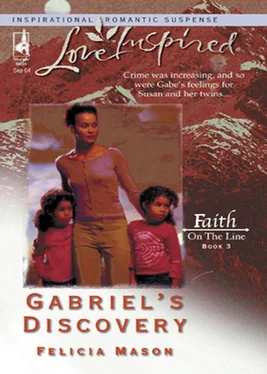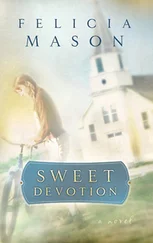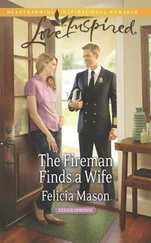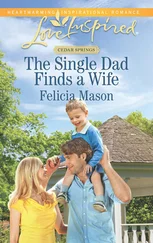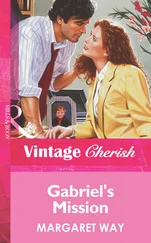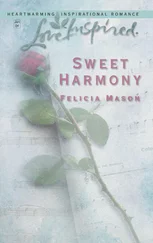Gabriel’s mouth tightened. “You’re still together?”
“No,” she said. It could have been a trick of the light, but Susan thought she saw his jaw loosen a bit when she said that. “He died a few years ago. He OD’d.”
“So that’s when you took up the crusade to save other women?”
“I’ve never thought of my work as a crusade, but I suppose it is,” she said. “And to answer your question, no. That came a long time later. After the healing. After living in the shelter. After rededicating myself to the Lord and getting my life together.”
Not comfortable being the focus of their conversation, she deftly turned the tables. “You were in the military.”
Gabriel nodded. “Marines.”
“Semper fi and all that.” She glanced up at him. “What does that mean anyway?”
“It’s short for semper fidelis, always faithful.”
Susan smiled. “Really? I like that. It works on a couple of levels, including a faith-based one. So how’d a big, strapping marine end up as a minister in Colorado Springs?”
“Being faithful to my calling,” Gabriel said. “I’ve always ministered to people whether I was ordained or not. But accepting the call to ministry in this way enabled me to put my own faith on the line for a higher cause.”
“And people shooting at you in a war isn’t a higher cause?”
The edges of his mouth curved up. “Yes, but…”
She waved a hand in dismissal. “Just messing with you, Rev.” They paused in front of a house, all of its first-floor windows boarded over. “It’s been a real tragedy to see what’s happening to our city. It’s turning into something like the ‘killing fields’ you probably encountered overseas.”
“What happened?”
Susan didn’t know if he was asking about the house they stood before or the decline of the city she loved, but the answer in either case was, unfortunately, the same. “Drugs. Too many people indifferent until it’s way too late. Neighborhoods don’t decay overnight. But one day someone in the city looks up and says, ‘Hey, how did this happen?’ It seems like an overnight transformation only because no one notices the slow decline. We all just woke up one morning and our community had been taken over.”
“But it wasn’t overnight?”
She shook her head. “Hardly. My husband got caught up in what was probably the first wave of this epidemic. He killed himself by overdosing on cocaine.”
He reached for her hand. “I’m sorry for your loss.”
“There’s nothing to be sorry about. Reggie…” She paused before she said got what he deserved, the bitter words swirling in her head surprising her. After all this time she had thought she’d put the experience with him behind her. She had thought she’d let go of all the anger.
But how could she really? Everything she was today, from her position as director of the Galilee Women’s Shelter to the woman standing here on this street corner with Gabriel Dawson, was a direct result of what Reggie had put her through. If it hadn’t been for the way he’d forced her to grow up, Susan knew she could very well be one of the people she was trying to reach out to.
“Reggie was a man who let his compulsions get the best of him,” she ended up saying.
“You miss him?”
She glanced up at Gabriel. “Not the way you think.” And because that sounded so cold, she added, “Our marriage was over long before he died. He’d been on a path toward destruction for a while, a long while. His death, like so many others, was a direct result of readily available drugs on the street. But if it hadn’t been cocaine, he’d have found some other way to self-destruct. Reggie was just like that.”
She walked up the steps leading to the porch at the house and tucked three of the brochures in the mail slot on the front door.
“It doesn’t look like anyone lives here,” Gabriel observed.
The house had the stillness of decay and neglect that said it had been abandoned for some time. Dead leaves, spiderwebs and debris including potato chip bags and mangled beer cans jammed the corners, mixing with peeling paint chips.
“You’d be surprised, Reverend,” Susan said.
She bent to the mail slot and hollered through. “Hello to the house. I dropped some information about Galilee Women’s Shelter in your front door.”
When she turned to go, Gabriel paused.
“What’s wrong?” Susan asked him.
“I thought I heard something.”
As if she were guiding along one of the twins, Susan took his hand. “Come on. You probably did. People coming to see what I put in there.”
Gabriel remained silent as they descended the steps and continued their walk. But he looked back at the house.
“Is there a lot of that?” he eventually asked.
“A lot of what?”
“People living in abandoned homes?”
“In certain parts of the city, yes.”
“And this is one of those parts.” It was a statement, not a question.
“Welcome to the hidden and forgotten underside of Colorado Springs. This would be the part not in the tourism brochures.”
A couple of people sitting on a stoop called out to Susan. She waved, then spotted one of the pillars of the neighborhood sitting on her front porch. Susan motioned for Gabriel to follow. They stepped carefully around an area of buckled sidewalk.
“How are things with you, Mrs. Turner?” Susan called in greeting.
The frail-looking woman sat on a plaid sofa that had seen better days, but looked as comfortable as the woman holding court. “’Bout as well as can be expected for an eighty-year-old blind lady.”
Susan smiled. “You may not have your sight, but you know everything that happens on this block.”
“That’s the truth,” the woman said. “Who you have with you today?”
Gabriel looked startled.
Mrs. Turner smiled. “My eyes don’t work, son. There’s nothing wrong with my nose and my ears. You smell good. Come on up here. This your beau, Susan?”
She blushed, not that Mrs. Turner could see it, but Susan had a feeling the elderly woman knew anyway. She quickly made the introductions. “Nothing like that. This is Reverend Gabriel Dawson, the new pastor at Good Shepherd. Reverend, this is Mrs. Mattie Turner.”
“A preacher, huh?” Mrs. Turner said. “That’s a lot better than what you had before, God rest his soul.” She turned unseeing eyes toward Gabriel. “I used to go to Good Shepherd. It’s nice meeting you, Reverend.”
Gabriel took her hands in his. Contrary to her appearance, Mrs. Turner’s grip was strong and sure. Susan got a kick out of again seeing his surprise.
“Well, you’re a tall one, aren’t you.”
“Yes, ma’am. Six foot three. It’s a pleasure to meet you, too. You said you used to be a member of Good Shepherd. I’d like to invite you back. We have some innovative programs for members of all ages. I think you might enjoy it.”
“He’s a charmer, isn’t he,” Mrs. Turner said to Susan.
She agreed, but had no intention whatsoever of admitting that. Susan made a noncommittal sound.
“I’ll think about it,” the elderly woman said. “Don’t get around as well as I used to.”
She invited them to sit, then she started telling them about her “great-grands.”
There was no point in rushing Mrs. Turner. When she had a point to make, she made it—even if it took an hour or all day. Susan settled into one of the straight-back kitchen chairs that had been hauled to the porch for the sole purpose of this kind of entertaining.
In addition to squiring the handsome preacher around the neighborhood, Susan’s walk had another purpose. By knocking on doors, she hoped to find the twins’ classmate’s house. Hannah and Sarah thought Jasmine lived in this block, but they weren’t sure. Jasmine, the girls said, wasn’t allowed to have company.
Читать дальше
